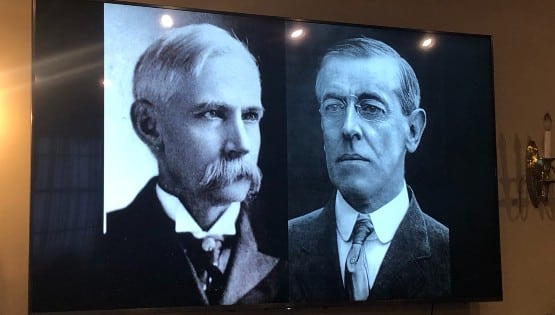
The U.S. Supreme Court of the United States today heard arguments about a revoked U.S. Forest Service permit to allow a 600-mile long fracked gas pipeline to bore under the Appalachian Trail—a unit of the national park system—on national forest land.
The Fourth Circuit Court of Appeals ruled in December that the Forest Service was not authorized to grant the permit to Dominion Energy and Duke Energy.
The project has the backing of the Trump administration, no surprise, and the Fourth Circuit Court ruling was appealed by West Virginia Attorney General Patrick Morrisey, who cited concerns that the ruling could set up an “impenetrable federal barrier to economic development.”
Today’s arguments before the Supreme Court came from the Southern Environmental Law Center, representing Cowpasture River Preservation Association, Alliance for the Shenandoah Valley, Highlanders for Responsible Development, Shenandoah Valley Battlefields Foundation, and Virginia Wilderness Committee, and the Sierra Club.
“This case is just one example of the wrong and reckless route that Dominion chose for this pipeline,” said D.J. Gerken a senior attorney with the Southern Environmental Law Center, who argued this case in the lower court. “ACP developers should be playing by the rules, but instead they used political pressure to push a risky project through that, in the end, would harm our public lands and stick utility customers with the bill.”
“The route was a serious problem from the very beginning. Dominion wanted to run a large-diameter gas pipeline across steep mountains, untouched forests, pristine waters like the Cowpasture River, and protected forest and park land. But our landscape—our mountains, rivers, and forest—was never the right the place to do that, and that has been obvious to all of us since 2014,” said Dick Brooks of the Cowpasture River Preservation Association.
“For the past six years, communities have been speaking out against the damage this unnecessary fracked gas pipeline would cause to our health, water, and climate,” said Kelly Martin, director of the Sierra Club’s Beyond Dirty Fuels Campaign. “It is a dirty, dangerous project that would endanger communities, harm wildlife, pollute our air, damage water quality, and change the character of our land. Today, our fight against the ACP took us to the Supreme Court, but the fight didn’t start here and it won’t end here.”
“This fracked gas pipeline poses serious environmental and safety risks in its attempt to cut across Appalachia. Simply put, they could not have chosen a worse place to construct this dirty, dangerous pipeline,” said David Sligh, conservation director of Wild Virginia. “Families and communities along ACP’s proposed route are there because they have deep connections to the land—my own family has lived in these mountains since the early 1700s. The places threatened are our heritage and our legacy, not just for Virginians but for all Americans.”
“Public lands in the George Washington National Forest are so important to communities in the Shenandoah Valley,” said Nancy Sorrells of the Alliance for the Shenandoah Valley. “They give us a place to hike and fish, beautiful vistas, and millions of dollars in recreation revenue. They also give us the bountiful fresh water that farmers and cities alike need every day. The Valley depends on these lands, they are home, and no place for a destructive pipeline.”
Story by Chris Graham










